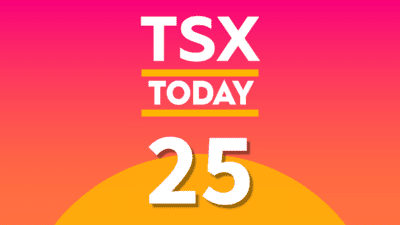The inflation rate in Canada dropped to 7.6% last month, according to a report published by Statistics Canada this morning. That’s lower than the 8.1% rate of the previous month. A similar pattern seems to be playing out in the United States. Some investors believe this is an indication that the inflationary wave has peaked. Others argue that the rate could rebound higher in the months ahead.
Here’s a closer look at what’s going on.
Peak inflation?
Economists believe higher interest rates should curb demand and gradually cool inflation. This year, the Bank of Canada has rapidly increased the benchmark policy rate from 0.25% to 2.5% this year. As borrowing gets more expensive, consumers and businesses should pull back on spending, ultimately lowering inflation.
This month is the first time inflation has dropped on a month-over-month basis this year. However, the drop is driven primarily by energy prices. Canadian consumers paid 9.1% less for gasoline in July. They paid more for everything else. From food to rent, every aspect of the Consumer Price Index was up double digits this month.
To vindicate the “peak inflation” theory, all elements of household consumption need to stop rising rapidly. In other words, the inflation of rent and food prices needs to drop to low single digits in the months ahead.
Stocks that could rally
If inflation continues to drop it could boost growth stocks. The Bank of Canada can slow down its rate-hiking cycle, which makes growth stocks more attractive.
Undervalued growth stocks like Open Text (TSX:OTEX)(NASDAQ:OTEX) could rally. The stock has lost 14.5% of its value year to date. It’s now trading at just 27 times earnings per share. The stock is also trading at 12 times forward earnings per share. That’s lower than the company’s historical average of 14.5.
The Open Text team expects bookings to expand 15%, with 3-4% growth in total revenue in the year ahead. If Open Text can meet its targets the stock could rebound sharply if the Bank of Canada pivots and investors rush back to growth stocks.
However, if inflation remains elevated, and the Bank of Canada keeps raising rates, investors may have to seek out defensive stocks.
Defensive stocks
Essential businesses that are somewhat detached from the economy could serve as safe havens if inflation persists. Fortis (TSX:FTS)(NYSE:FTS) is an excellent example. The utility company has immense pricing power, as consumers need to pay their bills regardless of economic conditions.
This is why Fortis stock sustained its valuation during the 2008 crisis. In fact, the company raised dividends during the previous financial crisis and even during the pandemic. Fortis has raised its dividend payment every year for 49 consecutive years. That’s a testament to its resilience.
In 2022, Fortis stock could serve as a safe haven if the economy continues to deteriorate. If inflation rebounds to historic highs, Fortis can pass the increased costs to consumers. This is why investors should have some exposure to this defensive stock.
Bottom line
The inflation rate dropped last month. If this downward trend continues, growth stocks like Open Text could surge. If it doesn’t, investors need to seek safety in defensive stocks like Fortis.








